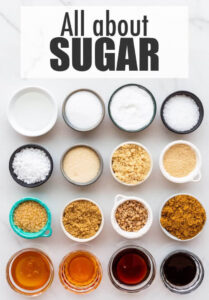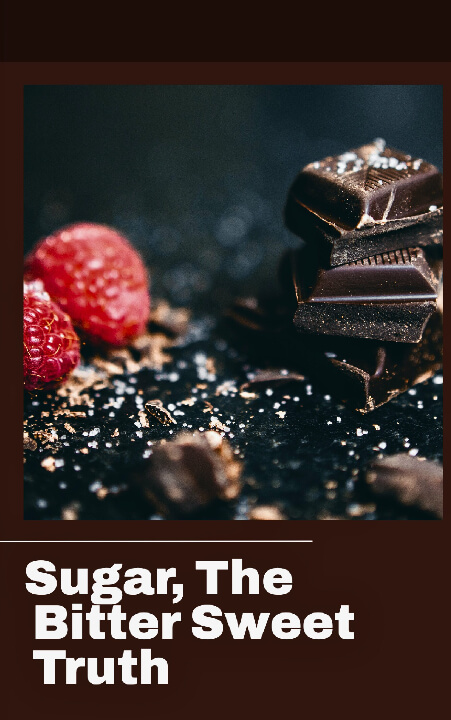The Sweet Trap: Unraveling the Mysteries of Sugar Addiction
Introduction
Sugar can be pretty amazing. It’s the purest form of energy available to us, and it tastes great. But for some, it feels like we need sugar desperately. Researchers have found that sugar activates the reward and pleasure centers of our brains in the same way addictive substances do. So, what’s the deal with sugar addiction, and how can we break free from its sweet grip?
The Science Behind Sugar Addiction
- Volume, Frequency, and Feelings: Key features of sugar addiction include volume (how much you eat), frequency (how often you consume it), and feelings (whether you feel out of control). If you’re answering “yes” to these questions, chances are you’re dealing with dependency.
- Chemical Imbalance: Sugar addiction is a chemical imbalance. It lowers both opioid and dopamine receptor availability in our brains, making it hard to resist those sugary treats.
- Health Risks: Long-term consequences of sugar addiction include elevated risks of type 2 diabetes, overweight or obesity, fatty liver disease, chronic inflammation, heart disease, and stroke.
Types of Sugar

What’s the difference between natural sugar and added white sugar? Is juice sugar and soda sugar the same as the sugar from natural fruit juice?
Let’s break it down:
- Natural Sugar vs. Added White Sugar:
- Natural Sugar: Found in whole foods like fruits, vegetables, and dairy products. It comes with fiber, vitamins, and minerals. Examples include fructose (from fruits) and lactose (from milk).
- Added White Sugar: This is the refined sugar we add to foods during processing or cooking. It lacks nutrients and can lead to health issues when consumed excessively.
- Juice Sugar vs. Soda Sugar vs. Fruit Juice:
- Juice Sugar: Refers to the natural sugars present in fruit juices. However, even natural fruit juices can be high in sugar. It’s better to consume whole fruits to benefit from fiber and antioxidants.
- Soda Sugar: Found in soft drinks (sodas). These beverages contain added sugars, often in the form of high-fructose corn syrup. Soda sugar is not the same as the natural sugar in fruit juice.
- Fruit Juice: Contains natural sugars from the fruit itself. While it’s better than soda, whole fruits are still a healthier choice due to their fiber content.
So here’s the several types of sugar:
- Added Sugar: The kind we don’t need but often crave. It’s hidden in processed foods, desserts, and sugary drinks.
- Natural Sugars: Found in fruits, vegetables, and dairy products. These come with fiber, vitamins, and minerals.
- Juice Sugar: Even natural fruit juices can be high in sugar. Opt for whole fruits instead.
- Soda Sugar: Soft drinks are notorious for their sugar content. Swap them for water or herbal teas.
- White Sugar: The refined stuff that’s devoid of nutrients. Limit its use.
- Fruit Sugar: Found naturally in fruits, it’s a healthier choice due to fiber and antioxidants.
Recommendations and Best Practices
- Gradual Reduction: Don’t go cold turkey. Gradually reduce sugar intake to avoid cravings.
- Balanced Diet: Eat regular meals to stabilize blood sugar levels.
- Hydration: Sometimes thirst masquerades as sugar cravings. Stay hydrated.
- Read Labels: Be a sugar detective. Check food labels for hidden sugars.
- Whole Foods: Choose whole grains, fruits, and veggies over processed foods.
- Mindful Eating: Pay attention to hunger cues and emotional triggers.
- Sleep Well: Lack of sleep can lead to sugar cravings.
- Stress Management: Stress triggers sugar cravings. Find healthy coping mechanisms.
Conclusion
Sugar addiction is real, but breaking free is possible. Seek support from healthcare providers, practice mindful eating, and prioritize your health. Remember, you’re not alone in this sweet battle!
If you seek more in depth information about this topic, consider purchasing from our online shop this EBook we made specially for you:

Remember, moderation is key, and your health matters! 🌟🍎🚫
I hope you find this information helpful! If you have any more questions, feel free to ask. 😊

